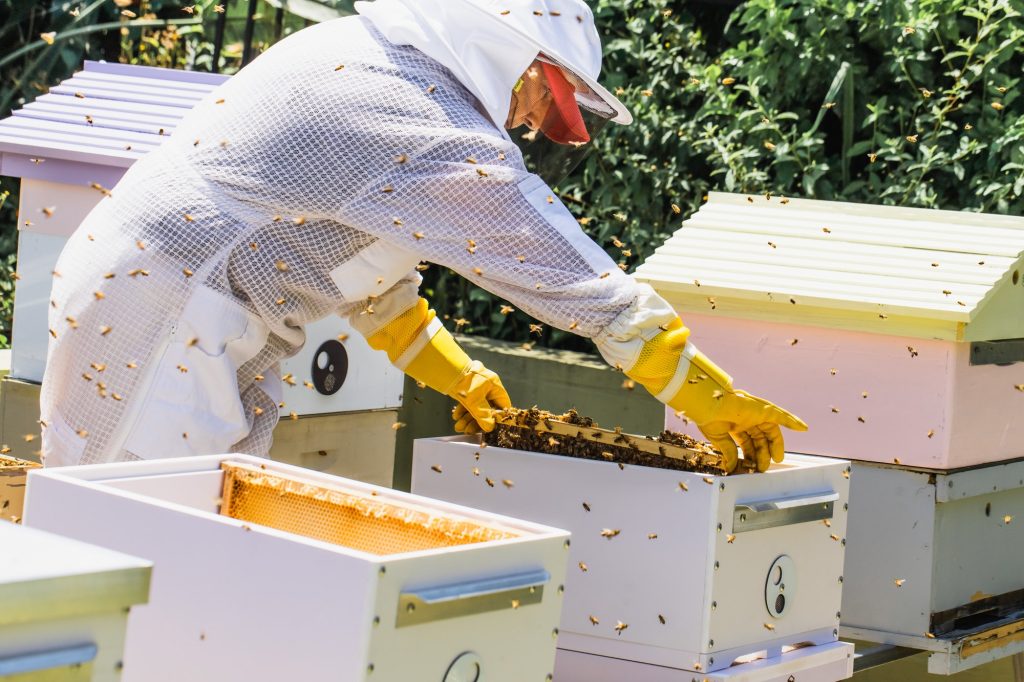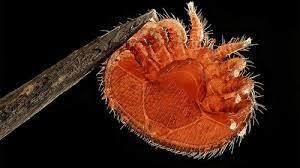Honey industry on high alert
Lee O'Connor
25 June 2022, 3:33 AM
 The deadly Varroa mite has been found in a surveillance hive near the Port of Newcastle.
The deadly Varroa mite has been found in a surveillance hive near the Port of Newcastle.Apiarists across New South Wales are rallying in response to the discovery of the potentially devastating Varroa mite in hives in Newcastle.
The NSW Government announced yesterday that biosecurity surveillance detected Varroa mite in hives at the Port of Newcastle and that swift measures were being taken to contain the disease.
“We have immediately launched an eradication plan which involved setting up a biosecurity zone, containing the infected hives and euthanising the bees,” Mr Saunders said.
“Australia is the only major honey producing country free from Varroa mite and if it has the chance to establish here, it could cost the honey industry more than $70 million a year.
Dubbo-based Daniel Warman is the President of the Western Plains branch of the NSW Apiarists Association, and told the Western Plains App that they had known about the incursion for a couple of days.
"It's going to be a major shake-up for the industry," he said. "We've had a couple of scares where they've found them on boats and sorted it out but they're on land now in the surveillance boxes, so it will be out there."
Mr Warman says it's quite possible that at least one of their western plains members, who have at least 15,000 hives between them, could have hives in the Hunter area.
"We work the Hunter all the time," Mr Warman said. "When the drought was on we were there all the time."

PHOTO NSW Apiarists Association.
A Biosecurity Zone has been established, locking down hives an area within a 50 kilometre radius of the Port of Newcastle.
Beekeepers within this zone must not move or tamper with their hives and must also notify the NSW Department of Primary Industries with the location of all of their hives.
Bees within a ten kilometre radius of the contaminated hive are being exterminated as a precaution.
However he warns that while most commercial beekeepers are vigilant and prepare for this type of outbreak among their livestock, it is the amateur beekeepers who pose the greatest risk.
"Newcastle is such a big hobby area and there would be hundreds of those backyard fellas," he said.
"Backyard beekeepers will be the trouble, especially those who've had a couple of hives and then forgotten about them."
"The commercial fellas, most of us have a plan for this," Mr Warman said.
The mites are tiny reddish-brown parasites and are easily identifiable to the naked eye.

New South Wales is Australia's biggest beekeeping state, with around 2800 registered beekeepers and 45% of the nation's hives.
It is estimated that the industry contributes around $36 million annually to the state’s economy through the production of honey, bees wax and other hive products.
Nationally the pollination services provided by honey bees are estimated at $4-6 billion.
Globally the industry claims that at least one in three mouthfuls of food depends on honeybees and, up until this week, Australia was the only country in the world not dealing with the costly Varroa mite infestations.
Commercial beekeepers will now work closely with the NSW Department of Primary Industries in the hope that the Varroa mites have not travelled beyond the immediate port area.
"We need to know, and all the small hobbyists need to be included," Mr Warman said.
"We'll have to see how far it goes first and then deal with it.".
"They'll know in the next couple of weeks," he said.
"We're all on the same page, we've just got to do whatever it takes."
If you have bee hives located within the biosecurity zone please notify DPI of their location by calling 1800 084 881 or completing the form on this website: https://forms.bfs.dpi.nsw.gov.au/forms/9247
